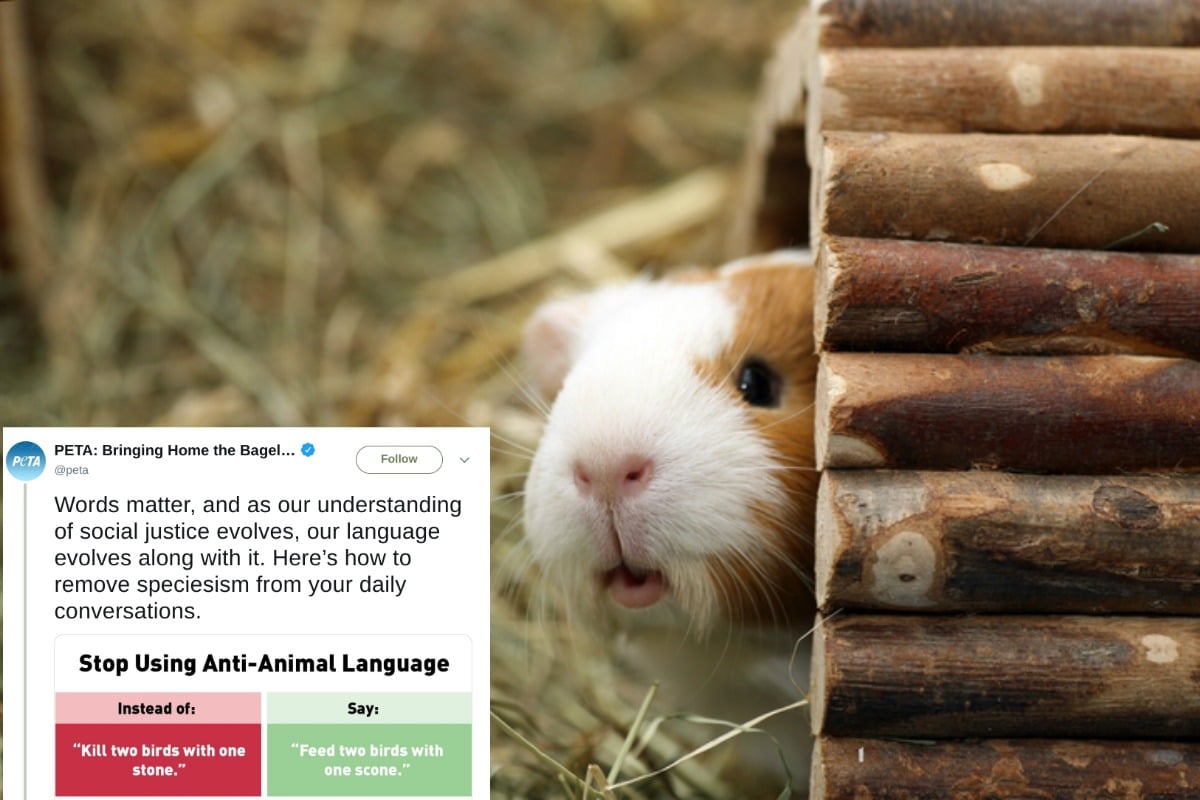
Animal rights organisation PETA are known for using controversial tactics to get the masses talking about animal welfare.
But on Wednesday, what was probably one of their more conservative strategies started a heated conversation online, with some saying the “absurdity” of the organisation had “gone to a whole new level”.
You see, according to PETA, our words matter, and using language that trivialises cruelty to animals can do significant harm. So, they suggested, we should all try to tweak our language, so as to “remove speciesism from your daily conversations”.
According to BBC Ethics, ‘speciesism’ is a form of discrimination based on species membership, whereby humans assume they innately have greater moral rights than other animals. People who fight speciesism believe that the concept of human superiority is arbitrary, and is akin to other forms of prejudice like sexism or racism. Of course, there are many who find this comparison offensive and disrespectful.
Nonetheless, PETA tweeted a list of five common animal-related phrases we all tend to use in our day-to-day lives, providing alternatives to remove their ‘anti-animal’ sentiment.
These phrases included sayings like, ‘kill two birds with one stone,’ ‘bring home the bacon,’ and ‘beat a dead horse,’ with alternative suggestions including, ‘feed two birds with one scone,’ ‘bring home the bagels,’ and ‘feed a fed horse’.
Words matter, and as our understanding of social justice evolves, our language evolves along with it. Here’s how to remove speciesism from your daily conversations. pic.twitter.com/o67EbBA7H4
— PETA: Bringing Home the Bagels Since 1980 (@peta) December 4, 2018


Top Comments
PETA sound barking mad
Scones would be bad for birds.... those bird killers.